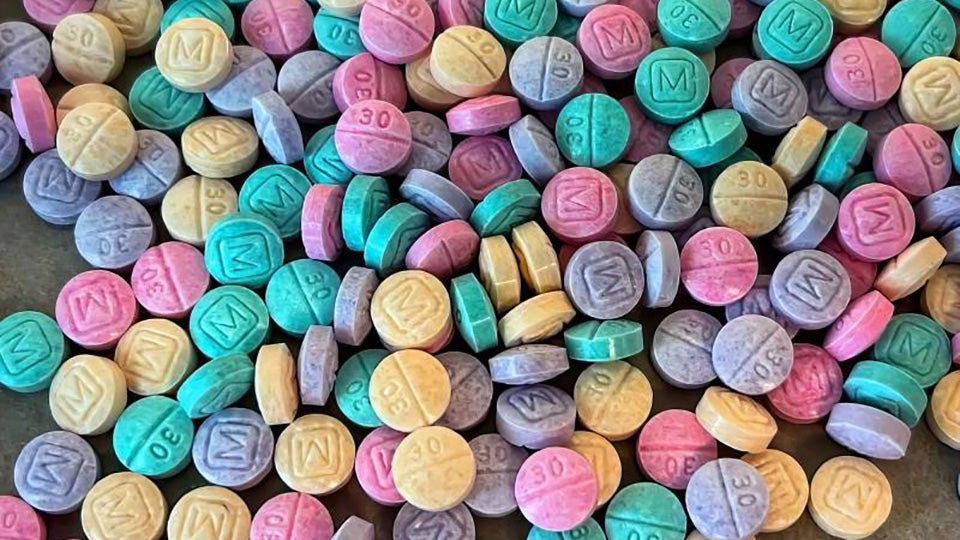Have the drug conversation before it’s too late to do it
Published 1:00 pm Monday, September 26, 2022

- DEA PHOTO Rainbow fentanyl
It’s normal for parents to be worried about illicit fentanyl, a highly lethal drug that has fueled an unprecedented rise in overdose-related deaths in Mississippi communities. The good news is that they can turn their concern into action by learning the facts and helping their children protect themselves from dangerous substances and the alarming increase in the availability and lethality of fake prescription pills.
“Many people who overdose on illicit fentanyl have no idea what they were taking,” said Jan Dawson, program director, Mississippi Public Health Institute. “One way we’re trying to stop this trend is through awareness, education and communication, especially between parents and their kids. There are tools and resources parents can use to keep their families safe and get help for family members who are struggling with substance use disorders.”
More than 190 people die each day from overdoses involving synthetic opioids like illicit fentanyl, which is often added to counterfeit pills. While 79% of teens say stress and anxiety are common reasons to misuse prescription medicine, 73% report they hadn’t heard of the risk of illicit fentanyl or its prevalence in counterfeit pills.
According to a CBS News report, the ease of acquiring drugs on social media has fueled the spike in fentanyl-related deaths that have more than tripled among children 10 to 14 since 2019. Last year the U.S. recorded more than 100,000 drug overdose deaths in a 12-month period for the first time, according to the Centers for Disease Control and Prevention. Illicit fentanyl and other synthetic opioids were involved in an estimated two thirds of those deaths.
Here are a few tips parents can use to open a dialogue about deadly drugs like illicit fentanyl:
• Make it a conversation: Never tell teens not to do drugs. Those who are most at risk may tune out such warnings if they feel they’re being judged. Instead, listen to what they have to say and be empathetic and supportive. Stick to the facts and life-saving tips.
• Explain the reality: Illicit fentanyl is not a distant danger — it’s taking lives every day. It is nearly impossible to tell a legitimate prescription medication from a “fentapill,” or illicit fentanyl pill, 40 percent of which contain a deadly dose of illicit fentanyl. In most cases, drug dealers and buyers have no idea what they’re dealing with.
• Be clear about the risks: Fentanyl is tasteless, odorless and too small to see. An amount about the size of two grains of salt can be lethal, and it has been distributed in pills, powders and marijuana. Dispel the myth of a “safe” source: Substances are laced with illicit fentanyl long before they reach friends, dealers and friends-of-friends that teens trust to supply them.
• Help them find naloxone, an emergency overdose treatment: Naloxone can reverse an opioid overdose. Let teens know that naloxone is legal for ALL ages, and that they can get access to naloxone privately through a pharmacy without a prescription.
• Stress the importance of looking out for one another.
• Teach them that it’s OK to seek help: Naloxone reverses overdoses, but it’s not the only medical attention someone will need. Impress upon teens the importance of calling 911 after administering naloxone. If you seek medical assistance in a drug-related overdose, you and the victim cannot be prosecuted for drug possession.
• Keep the door open: Let teens know that you are available if they have questions. Encourage them to visit ODfree.org to learn more.





